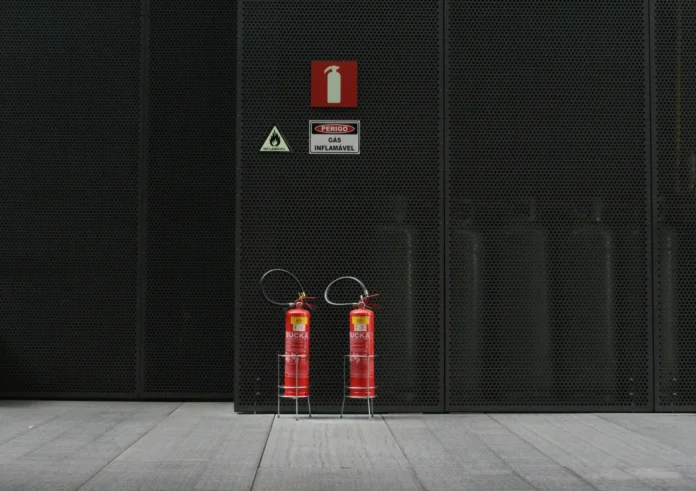Fire safety is an essential aspect of maintaining a safe living environment. Fires can be devastating, not only causing physical damage to your property but also posing serious risks to your health and safety. From searching for an electrician near me to inspect your home’s wiring to buying new fire extinguishers, implementing fire safety measures in your home can significantly reduce the likelihood of a fire and ensure you are prepared in the event of one. Here are some crucial fire safety tips to help protect your home and loved ones.
1. Install Smoke Alarms
One of the most effective ways to prevent fire-related tragedies is to install smoke alarms in your home. Ensure you have smoke alarms on every level of your home, especially near sleeping areas.
Regular Testing and Maintenance
Test your smoke alarms monthly by pressing the test button. Replace the batteries at least once a year or whenever you hear the low-battery chirp. Additionally, replace smoke alarms every ten years to ensure they function correctly.
2. Develop an Escape Plan
Creating a fire escape plan is critical for ensuring everyone in your household knows what to do in the event of a fire.
Practice Drills
Conduct fire drills regularly to familiarize everyone with the escape routes. Identify two exits from every room, and designate a meeting place outside where everyone can gather after evacuating.
Communication
Make sure all family members, including children and elderly individuals, understand the plan. Discuss how to alert others in the house and how to escape if the fire is blocking your primary exit.
3. Keep Fire Extinguishers Handy
Having fire extinguishers readily available can make a significant difference in managing a small fire before it escalates.
Placement and Maintenance
Place fire extinguishers in easily accessible locations, such as the kitchen, garage, and near any major heat sources. Familiarize yourself with how to use them and check their pressure regularly to ensure they are functional.
4. Practice Safe Cooking Habits
Cooking is one of the leading causes of house fires. Being vigilant while cooking can help prevent accidents.
Stay Attentive
Never leave cooking food unattended, especially when using oil or high heat. If you need to leave the kitchen, take a timer or set an alarm to remind you to check on your food.
Keep Flammable Items Away
Keep items such as dish towels, paper, and wooden utensils away from the stove to minimize fire hazards.
5. Maintain Electrical Safety
Electrical malfunctions can lead to fires. It’s vital to practice safe electrical habits in your home.
Regular Inspections
Have a qualified electrician inspect your wiring, especially in older homes. Ensure that all outlets and cords are in good condition, and avoid overloading circuits.
Use Extension Cords Wisely
Limit the use of extension cords. If you must use them, ensure they are rated for the intended use and do not run them under rugs or furniture.
6. Store Flammable Materials Safely
Household items such as cleaning supplies, paints, and solvents can be highly flammable.
Proper Storage
Store these materials in a cool, dry place away from heat sources. Ensure that they are in tightly sealed containers to prevent spills and fumes.
7. Install Fire Doors
Fire doors are specifically designed to contain fires and prevent their spread. Installing fire doors in strategic locations in your home can enhance safety.
Importance of Fire Door Hinges
Ensure that the fire door hinges are properly installed and maintained. Regularly check that fire doors close securely, and do not prop them open. This is crucial for maintaining the integrity of the fire barriers in your home.
8. Use Caution with Heating Devices
Space heaters, fireplaces, and other heating devices can increase the risk of fire.
Safe Usage
Keep flammable materials at least three feet away from heat sources. Always turn off heaters when leaving the room or going to bed.
Chimney Maintenance
If you use a fireplace, have your chimney cleaned and inspected annually to remove creosote buildup, which can ignite.
9. Educate Your Family
Educating your family about fire safety can empower everyone to act quickly and effectively in case of an emergency.
Understanding Risks
Discuss the common causes of fires and what to do in various scenarios. Encourage questions and role-playing to ensure everyone feels confident in their knowledge of fire safety.
10. Stay Informed
Fire safety is not a one-time effort; it requires ongoing education and vigilance.
Local Resources
Consider attending local fire safety workshops or community events that focus on fire prevention. Many fire departments offer resources and training to help residents stay safe.
Conclusion
Implementing these fire safety tips can significantly reduce the risk of fire in your home and ensure that you and your loved ones are prepared in the event of an emergency. Regular maintenance, education, and proactive measures are essential components of a comprehensive fire safety strategy. Prioritize fire safety today to protect your home and ensure a safer tomorrow.



































